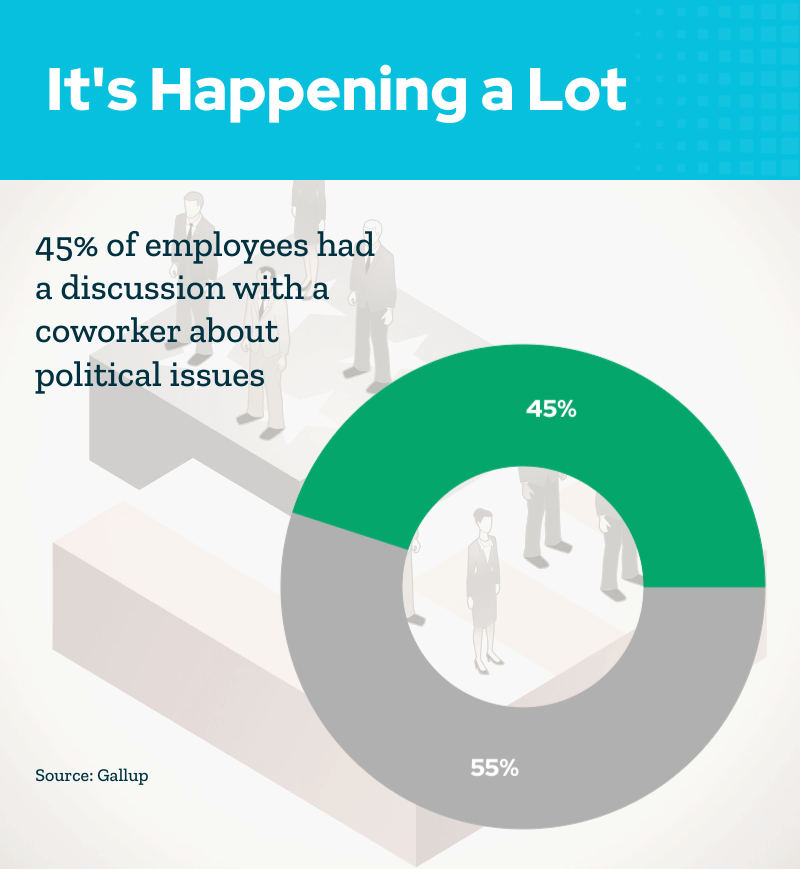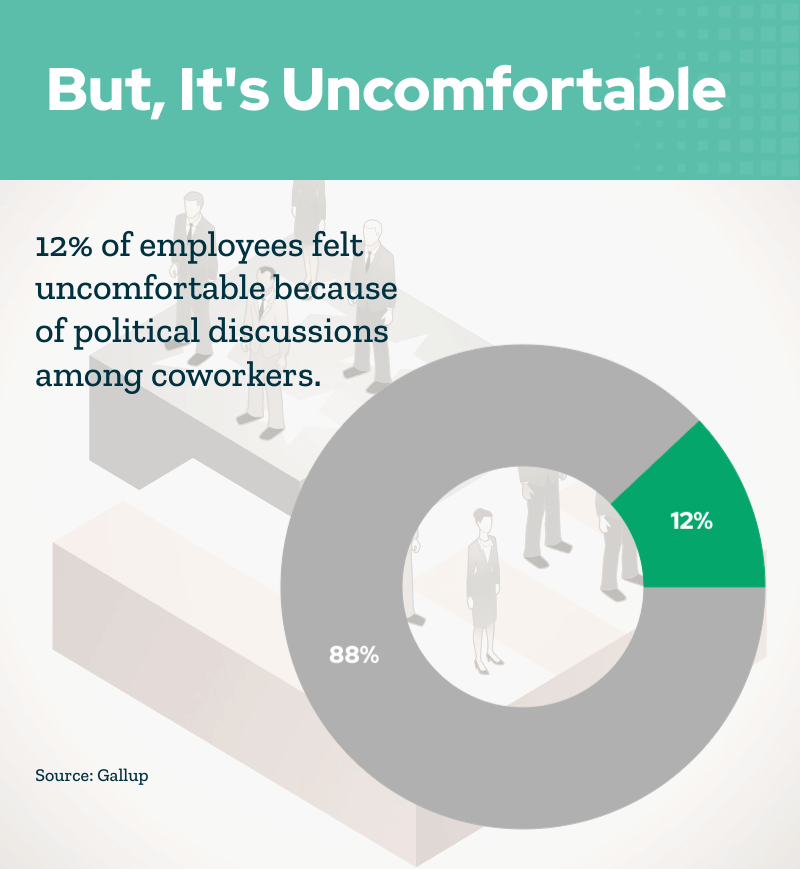Climate change, policing, immigration, guns, abortion, health care, political beliefs — there’s a lot people are conditioned to avoid talking about at work, and a lot we don’t write here on the KPA blog.
Seriously, just looking at that list of words gives me heartburn.
So why am I bringing them up? Because it’s becoming increasingly clear that we workforce safety, HR, and compliance professionals can no longer pretend that politics don’t exist. In these deeply divided times, charged political conversations are happening whether we acknowledge them or not.


According to a recent Gallup poll, 45% of employees had a discussion with a coworker about political issues, and 12% felt uncomfortable because of political discussions among coworkers.
Combine this with politics at work data from the Society for Human Resource Management: “42 percent of employees have had a ‘political disagreement’ at work, and 12 percent have experienced political affiliation bias.” That’s not all. A majority of respondents in SHRM’s poll believe political discussions at work have increased in recent years. And employers are taking notice—questions to the SHRM HR Knowledge Center about political disagreements have jumped threefold since 2017.
Political Discussions at Work
As much as you and I would probably like to, we can longer plug our ears and go la la la, I can’t hear you when a touchy subject comes up at work. If we’re not careful, what we’re really ignoring could be the risk of discrimination, harassment, and the headaches that follow.
Even if it doesn’t result in legal claims, unmediated talk about politics can negatively impact company culture, dragging down morale and engagement. SHRM warns that “[t]hese discussions if not managed transparently and with guidelines for civil discourse, can result in adverse employee experiences for those involved, as well as for bystanders.”
Talking Politics: Employer Best Practices
Regardless of personal politics, there are certain things every employer can do to help employees navigate these indigestion-inducing conversations in the work environment.
We’ve collected some resources to help keep things civilized:
- How to Manage Political Expression at Work
- 10 Tips for Tackling Political Polarization in the Workplace and Beyond
- How to Model Civility for a Better Workplace Culture
For more detailed HR and workplace risk management guidance around politics in the workplace, be sure to contact KPA.
Related Content
Explore more comprehensive articles, specialized guides, and insightful interviews selected, offering fresh insights, data-driven analysis, and expert perspectives.
